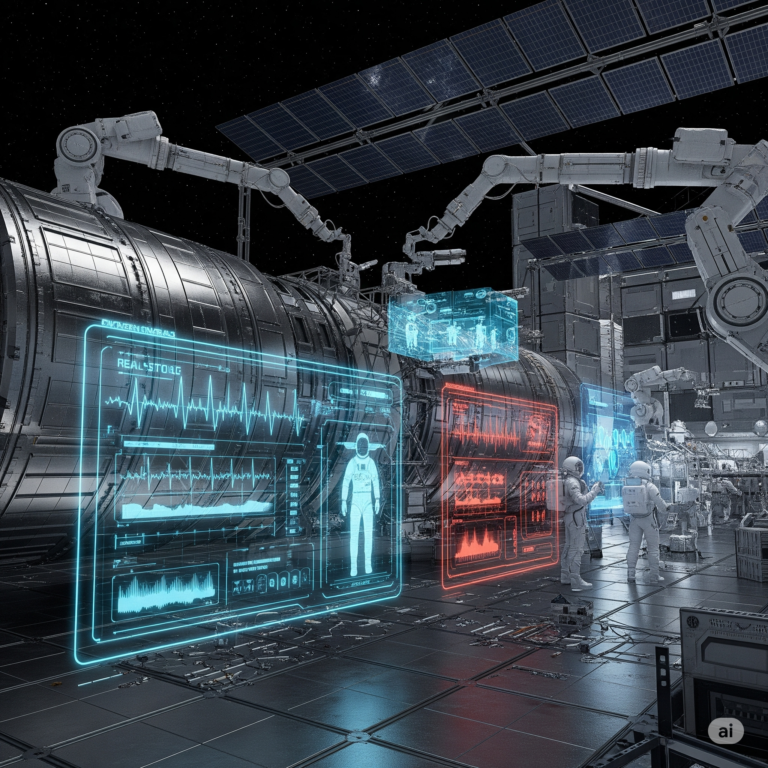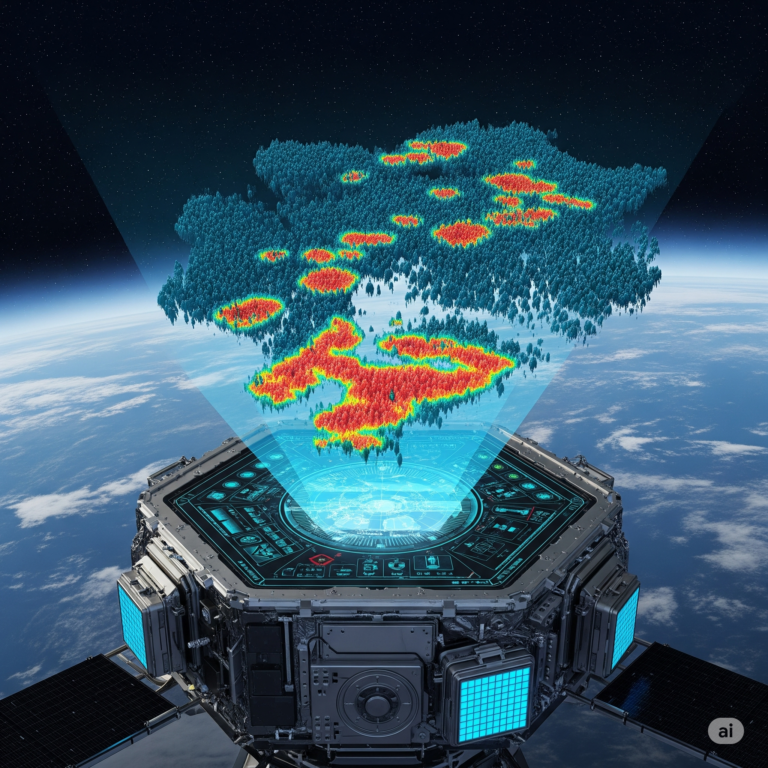Introduction
As climate change accelerates, emerging technologies like blockchain and artificial intelligence (AI) are stepping up to tackle global environmental challenges. Speculation about an X-Nova partnership suggests that blockchain-based AI climate tools could revolutionize sustainability, from energy optimization and emission tracking to eco-friendly business practices.
This article explores how AI and blockchain are shaping a more sustainable future, with a focus on lifestyle, health, business, fashion, sports, gaming, and global climate strategies.
How Blockchain and AI Are Transforming Climate Solutions
1. AI for Climate Prediction and Risk Management
- AI-driven climate models analyze historical data and real-time environmental changes.
- Predicts extreme weather events like heatwaves, hurricanes, and wildfires.
- Helps governments and businesses prepare for climate-related disasters.
2. Blockchain for Transparent Emissions Tracking
- Decentralized ledgers ensure accurate carbon footprint tracking.
- Enables trustworthy global carbon credit exchanges.
- Encourages corporate sustainability by preventing greenwashing.
3. AI-Powered Energy Optimization
- AI automates home energy efficiency, reducing electricity waste.
- Smart grids predict peak demand times to balance energy distribution.
- Businesses can optimize supply chains to reduce emissions.
4. AI and Blockchain in Carbon Credit Systems
- AI monitors real-time carbon emissions from industries.
- Blockchain ensures secure and fraud-proof carbon offset transactions.
- Companies can trade verified carbon credits globally.
Lifestyle Impact: Making Sustainability Effortless
1. AI in Smart Homes
- AI-powered energy assistants adjust appliances based on electricity demand.
- Homeowners receive real-time carbon footprint insights.
2. Sustainable Urban Planning
- AI designs energy-efficient buildings and city grids.
- Blockchain verifies green certifications for real estate.
3. Personalized Carbon Footprint Tracking
- AI apps provide real-time eco-impact reports.
- Users can track travel emissions and optimize routes.
Health Impact: AI and Climate Risk Prevention
1. AI Models for Heatwave Predictions
- Predicts high-risk areas and vulnerable populations.
- Improves public health response and emergency planning.
2. Blockchain for Medical Supply Chain Resilience
- Secures temperature-sensitive vaccines and medicines.
- AI ensures efficient distribution during climate crises.
3. Climate-Smart Healthcare Infrastructure
- AI optimizes hospital energy efficiency.
- Blockchain enhances data security for climate-driven health policies.
Fashion Impact: AI-Designed Eco-Friendly Materials
1. AI in Sustainable Fabric Production
- AI develops bio-based, biodegradable, and recycled textiles.
- Reduces water waste and chemical pollution in fashion.
2. Blockchain for Ethical Supply Chains
- Tracks raw material origins to verify sustainable sourcing.
- Prevents fraud in eco-labeling and certifications.
3. AI-Powered Circular Fashion Economy
- AI suggests recycling strategies for old clothing.
- Predicts market demand for sustainable apparel.
Business Impact: Reducing Carbon Footprints
1. AI for Green Business Optimization
- Automates energy consumption tracking.
- Suggests emission-reducing strategies for logistics and production.
2. Blockchain for Sustainable Finance
- Enables decentralized climate impact investing.
- Ensures transparency in green business funding.
3. AI in Sustainable Supply Chains
- Reduces waste through predictive inventory management.
- Optimizes transport routes to lower emissions.
Sports Impact: Climate-Resilient Training and Events
1. AI in Venue Climate Control
- Adjusts stadium cooling and heating to reduce energy use.
- Ensures sustainable management of large-scale events.
2. Blockchain for Green Event Planning
- Verifies carbon-neutral certifications for sports leagues.
- Tracks energy consumption and waste management.
3. AI-Optimized Athlete Performance in Climate Extremes
- Analyzes temperature and humidity impacts on training.
- Adjusts hydration and recovery strategies for extreme heat.
Gaming Impact: Greener Game Development Pipelines
1. AI in Energy-Efficient Game Development
- AI optimizes server loads to reduce power consumption.
- Predicts energy waste in gaming infrastructure.
2. Blockchain for Sustainable Gaming Economy
- Enables eco-friendly NFT marketplaces.
- Reduces crypto-mining emissions through sustainable practices.
3. AI for Greener Gaming Hardware
- AI-powered cooling systems reduce console energy use.
- Optimizes gaming device performance for energy efficiency.
National Impact: Strengthening Energy Security
1. AI for Energy Grid Stability
- Predicts power outages and balances renewable energy distribution.
- Prevents blackouts during extreme weather conditions.
2. Blockchain for Energy Market Transparency
- Secures peer-to-peer energy trading platforms.
- Enables real-time carbon tax tracking for industries.
3. Policy Adaptation and Climate Action
- AI-driven climate modeling aids legislative decision-making.
- Blockchain ensures compliance with green regulations.
Global Impact: A Universal Tool for Emission Reduction
1. AI for Global Emission Tracking
- Real-time AI models track emissions across industries and countries.
- Governments use AI data to enforce climate policies.
2. Blockchain for International Climate Agreements
- Secures carbon offset projects between nations.
- Ensures transparent climate financing for developing countries.
3. AI and Blockchain in Renewable Energy Expansion
- AI predicts optimal locations for wind and solar farms.
- Blockchain verifies renewable energy investments worldwide.
Challenges and Future Prospects
1. High Computational Demand and Energy Use
- AI and blockchain require high computing power, raising sustainability concerns.
- Need for energy-efficient AI models and green data centers.
2. Regulatory and Ethical Concerns
- Global policies must balance innovation with responsible AI use.
- Preventing AI bias and ensuring ethical blockchain implementation is crucial.
3. Expanding Adoption and Affordability
- Blockchain-based AI tools should be accessible to all economies.
- Governments and industries must invest in sustainable AI solutions.
Conclusion
AI and blockchain offer game-changing solutions for tackling climate challenges. From optimizing home energy use and predicting extreme weather to revolutionizing supply chains and sustainable fashion, these technologies hold immense potential.
As industries and policymakers embrace blockchain-based AI climate tools, we are moving toward a more transparent, energy-efficient, and eco-friendly future. With continued investment and innovation, AI and blockchain could become the foundation of global climate action and sustainability efforts.
Also Read:
Satellites, AI and blockchain: the unsung heroes in sustainability innovation









+ There are no comments
Add yours